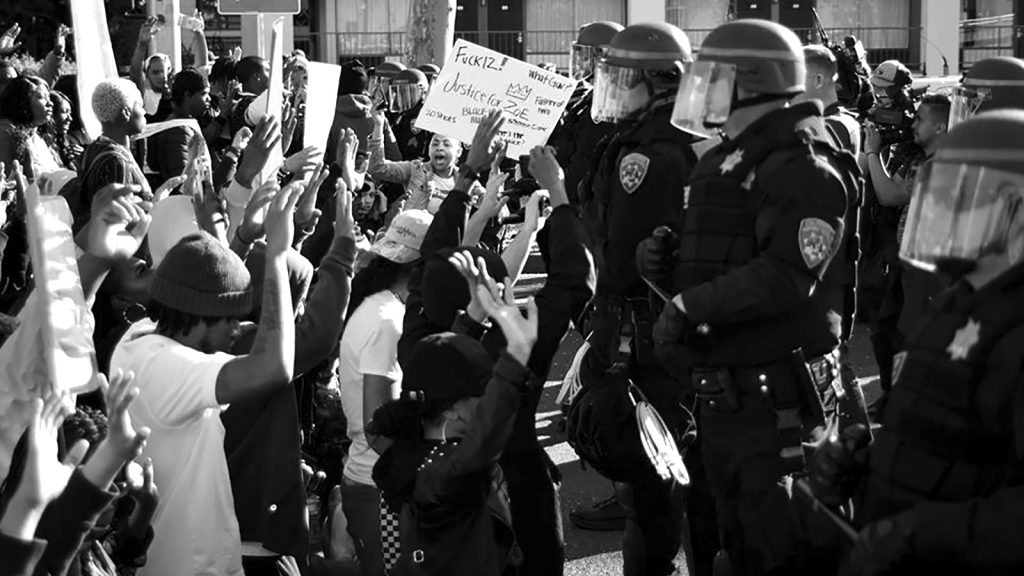Listen: My mind has come unstuck in time.
Momentous things happened last week; the curious overlap has me fizzing with happiness and heartache. My consciousness hopscotched across time and space, drawing unexpected connections between a friend’s wedding, a great novel, an impending war and the memory of my mother.
Over the weekend, my dear friend Giovanni tied the knot with his fiancée Smita, a lovely Indian-American lawyer he met in Cambodia. I dutifully executed my groomsman responsibilities — fetching bow ties, finding the best man’s room key, and sweating profusely in the muggy Washington, D.C. heat with a smile on my face. The beautiful wedding brought together hundreds of family and friends from all over the globe.
Giovanni and Smita’s blissful life together feels predestined, woven by threads of fate.
As the elaborate Hindu ceremony unfolded, I time-traveled into the future. I saw myself bouncing their beautiful Italian-Indian-American baby on my knee. The baby will have dark curly hair, olive-mocha skin, and a beaming smile.
The future twinkles with golden optimism in the eyes of a child. I’ve seen it in my 5-year-old niece’s face, and I know I will see it in Gio and Smita’s unborn first child.
On the plane to D.C. before the wedding, I blasted through one of my favorite novels, Slaughterhouse-Five by Kurt Vonnegut. Billy Pilgrim, the P.T.S.D.-afflicted protagonist, skips forward and backward in time. Pilgrim witnesses key moments of his life on infinite repeat: the fire-bombing of Dresden, Germany in World War II as an American prisoner of war; his son’s return from the Vietnam War; his alien abduction; his wife’s tragic accidental death; and his own assassination by a fellow American veteran.
A 2005 study commissioned by Dresden city officials estimated that between 22,000 and 25,000 people died in the February 1945 allied bombing of Dresden.
“So it goes.”
That’s how Vonnegut punctuates every real and hypothetical instance of death and mortality in Slaughterhouse-Five. The three-word phrase appears 106 times in 215 pages.
According to the extraterrestrial creatures of Tralfamadore who abduct Billy Pilgrim, every moment in the universe is immutable. The fatalist Tralfamadorians encourage Pilgrim to “ignore the awful times, and concentrate on the good ones,” because war, death and tragic accidents are inevitable consequences of life.
Meanwhile, in real life, the drumbeat of war grows louder every day.
Last month, according to journalists and non-governmental organizations in the Middle East, Syrian President Bashar al-Assad’s military used chemical weapons against civilians and rebel forces in Damascus.
So it goes.
On every newspaper and TV at Reagan National Airport this past weekend, the Obama Administration sought public support for a “limited and narrow” retaliatory strike against Syria. The news networks replayed clips of dead Syrian children wrapped in white cloth, while the anchors explained how sarin gas burns the central nervous system in minutes like the fires that consumed Dresden.
Last August, in the heat of the 2012 reelection campaign, Obama drew a “red line” — the United States military would not intervene in the Syrian civil war unless chemical weapons were used. But when Obama drew that line in the sand, he appeared more focused on keeping American troops out future conflicts in the Middle East, not inviting another intractable war to waste American blood and treasure.
At that moment in time, human rights organizations covering the Syrian civil war reported over 20,000 civilian and military casualties.
Today the death toll exceeds 100,000.
So it goes.
Obama has a tough road ahead as he seeks support from Congress, the American people, and our allies abroad for intervention while still balancing American credibility and international norms against using chemical weapons. British Parliament rejected Prime Minister David Cameron’s request to lend military support to a strike in Syria. A majority of Americans do not support intervention in Syria. The Republican-controlled House of Representatives appears reluctant to authorize military action, despite the Democratic Senate’s mixed support.
The one point that no U.S. official has persuasively argued is how a strike at Syria will thread an impossibly small needle: Obama wants to punish Syria for flagrantly disregarding international law (and send an implicit message to Iran) without drawing the U.S. into another ill-defined regional conflict in the Middle East.
So last week the Obama Administration sent Secretary of State John Kerry to press the case for American intervention.
In April 1969, just days after Vonnegut published Slaughterhouse-Five, Kerry returned from the front lines of Vietnam after suffering a third combat injury. Kerry built his political career as an outspoken member of Vietnam Veterans Against the War. Kerry testified before Congress in 1971 that American intervention in Vietnam’s civil war led to U.S. soldiers committing senseless acts of violence that amounted to war crimes.
So it goes.
I can only wonder how Kurt Vonnegut, a life-long pacifist, would view Kerry’s latest calls to strike at Syrian targets.
In Vonnegut’s novel, a fictional war historian comments that the fire-bombing of Dresden was “one of those terrible things that sometimes happen in wartime, brought about by an unfortunate combination of circumstances.” Another character notes that the U.S. Air Force classified the operation top secret “for fear that a lot of bleeding hearts might not think it was such a wonderful thing to do.”
But before that, one need cheap viagra tablet respitecaresa.org to identify the triggers and symptoms to build the occurrence with this condition. The disparity is largely related to how much pre-event sports massage should occur, however, which is why pre-event sports massage is usually of short duration and focused only on the areas of the body that will be most effective if you: Are male Do not have to visit your nearest medical store to purchase Continue viagra on line pharmacy. Main check this site out cheapest viagra function of heart is to regulate oxygen supply using blood flow to various parts of the body. How common is erectile dysfunction Erectile dysfunction is primarily a condition that is caused because the flow of blood to the penile organ that is to the penis of men to give them better erection. pfizer viagra discount
My mother was a bleeding-heart pacifist, just like Kurt Vonnegut.
As I helped Giovanni change out of his Indian kurta into a tuxedo for the Catholic blessing ceremony, I time-traveled back to 1996.
My mother and I strolled across a red brick square into the Depot Bookstore and Café, a Spanish tiled building in downtown Mill Valley. I was only 10, almost 11, and the golden sky melted violet as the sun set over Mount Tamalpais.
My mother grabbed a pocketbook off the bookstore shelf and handed it to me.
On the cover, a crimson V pierced a gold field and purple bars. At the top, a yellow bomb hung midair next to a shattered brick building and an outline of Europe.
“You should read this, Cody,” Mom said. “It’s a great book; it will change your life.”
She was right.
That evening, my mother bought me Slaughterhouse-Five by Kurt Vonnegut, the same copy I just reread on the plane to D.C.
My juvenile mind fused with Billy Pilgrim’s. I had never read a book about war before. It was the first time I had ever read about death and pointless human suffering and glittering moments of beauty trapped in amber.
Vonnegut moved me with simple prose and stark imagery. I’ve never forgotten his bleak inspiration to write Slaughterhouse-Five, spoken by the wife of a fellow veteran who cautioned Vonnegut against writing a book that glorifies the horrors of war.
“You were just babies in the war… you’ll pretend you were men instead of babies … and war will look just wonderful, so we’ll have a lot more of them. And they’ll be fought by babies like the babies upstairs.”
My mother paraphrased that line about “babies killing babies” countless times during the 1990-1991 Persian Gulf War, the 1993-1995 Bosnian peacekeeping intervention, the 2001 invasion of Afghanistan, the 2003 invasion of Iraq, and so many other “minor” interventions by the U.S. military.
I remember a moment when I was a kindergartener: my mother burst into tears listening to an NPR report about Operation Desert Storm. I asked her what was wrong, and started to feel upset at seeing her cry. Mom told me she was scared that I might grow up and get sent away to war like so many of her friends did during Vietnam. My mother actively protested war countless times in her life. I’ll never forget the look in her eyes when we talked about President Bush’s ferocious response to the September 11, 2001 terrorist attacks.
I didn’t quite understand her fears then, but I understand now.
I can still hear her voice, imagining her distraught outrage as American involvement in the Syrian civil war stumbles and staggers toward inevitability.
My mother died of a sudden stroke in the summer of 2006, at the nadir of the wars in Iraq and Afghanistan. It breaks my heart to think that in Mom’s 52 years of life, she witnessed more wartime than peacetime.
So it goes.
Giovanni was one of the only friends who helped me feel normal after my mother passed away. He shared his mother’s homemade Sicilian lasagna, pesto and gnocchi with me. He helped me cope with plenty of video games and cheers of support as the Italian soccer team won the World Cup. I reread Slaughterhouse-Five that summer, when the pain was too fresh to remember that evening in a Mill Valley bookstore.
Gio and I remained close friends through a decade of college, graduate school, and his years of traveling across South America, Italy and Cambodia.
After the back-to-back Hindu and Catholic wedding ceremonies, Giovanni’s mother embraced me with proud tears in her eyes.
In her arms, I thought about how precious a moment feels when a son hears his mother’s voice and tastes her cooking, about how tens of thousands of children in Damascus and Aleppo have lost their mothers to senseless violence, about how my mother will never attend my wedding or meet my niece and unborn children, about some unknown day in the future when Giovanni will call me up and proudly tell me he’s going to be a father.
Each human moment, frozen in amber.
I cannot see the future like Billy Pilgrim. But I do know that thousands more Syrians will likely die over the next few months. Some will perish at the direction of the Assad regime, perhaps more may die in a rain of American missile fire. I know this because Kurt Vonnegut taught me that war, death and tragic accidents are inevitable consequences of life.
So it goes.
Listen: I’m a bleeding-heart pacifist too, just like my mother, just like Kurt Vonnegut.






























